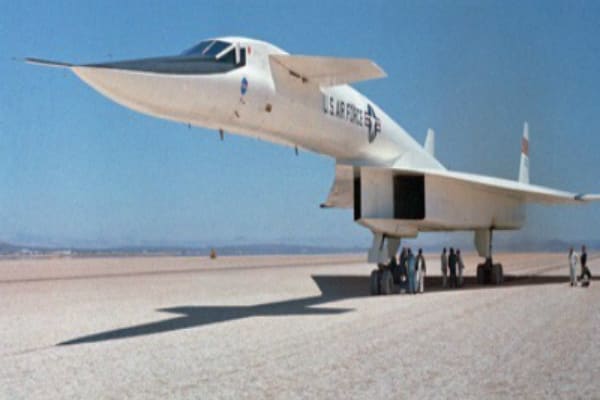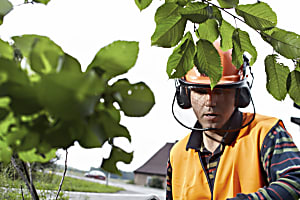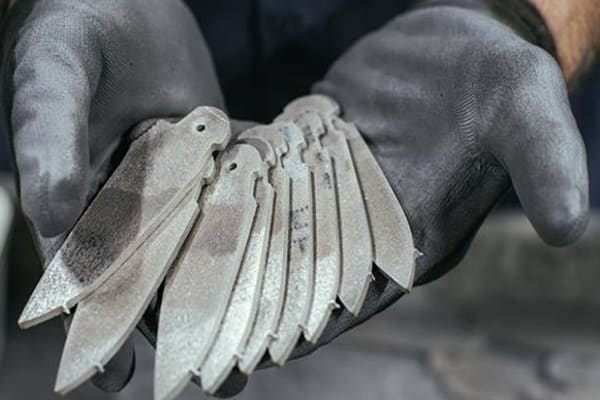Forty years ago, Goa didn't really have to do it, but when so close to the trophy, and up against the might of Bengal, nobody wanted to leave anything to chance. One particular employee at the Goa Football Association (GFA) believed he had what it takes to unsettle the Bengalis.
It was final of Women's National Football Championship at Panjim Gymkhana ground on November 6, 1977. Bengal had won the first two editions, including the previous year against Goa at Sultanpur. And when the two giants clashed again, tension was writ large on everyone's face.
The Goans, gunning for their first National title in any sport at any level, had the crowd backing them. There was no place to stand for the semi-final against Manipur which Goa won without breaking sweat. The 6-0 scoreline was proof of Goa's dominance. But Bengal were cut from a different cloth; they were the defending champions, had defeated Goa the previous year, and had eight international players, including four forwards.
How could you unsettle them?
It was here that the GFA staffer volunteered to help. His suggestion seemed odd but nobody would stop him. You had to defeat Bengal and not have a repeat of the heartbreaking Santosh Trophy semifinal loss when Bengal had the last laugh at the same venue in 1972. The elderly staffer was allowed access to the dressing room where he placed lemon and green chillies in one corner of the rival dressing room.
That did the trick.
"When Bengal entered the dressing room and saw the lemon and chillies, they were flustered. They came rushing out, believing someone had done black magic on them," recalled Antonio Botelho, the then secretary of Goa Football Association.
Bengal never really recovered from that blow. When they stepped out to take the field for the final, they were amazed to see a ground that accommodated more than twice its capacity. Fans had broken down the gates and fought their way inside the ground. Ticket sales had long been stopped but everybody wanted a piece of the action.
There were spectators all around, seated so close to the touchline - because there was no place elsewhere - that five minutes into the game when Bengal were awarded a corner, they refused to continue. A local newspaper reported there were 15,000 fans. Another magazine put the count at 20,000 but one thing was certain: It was the biggest crowd ever for a football game in Goa.
"I remember there was no place for them to take the corner," said Yolanda de Sousa, Goa's star player.
International referee Alex Vaz, a Goan, proved helpful. So did chief minister Shashikala Kakodkar, who was the chief guest. Both appealed to the spectators to move away a bit and allow the match to continue without any hindrance. The fun-loving spectators obeyed.
How Alex Vaz came to referee the game is another interesting story. Three days before the final, the All Women's Football Federation made it clear that local referees couldn't officiate the game. There was only one outstation referee from Manipur and he wouldn't be the best man to be at the centre. The local organisers said they had already summoned an international referee from Maharashtra. It was Alex Vaz, a Goan, who was at his home in Chorao on a holiday with his wife.
"We had to rush a local tailor to his home to take measurements and hurriedly stitch a referees uniform," said Botelho. The short pant didn't really fit Vaz; he kept holding on to it like dear life till the final whistle.
On the field, it was Goa all the way.
Goa had scored 46 goals prior to the final and the red-hot striking pair of Yolanda and Soccorinha Pereira had shared an amazing 36 goals between them. It started with a 25-0 demolition of Madhya Pradesh in the opener and ended with a historic 3-0 win in the final against Bengal, thanks to goals from Yolanda, Perpetua Fernandes (Sr) and Perpetua Fernandes (Jr).
"When the final whistle was blown, fans ran on to the field and were hugging the players. They were delirious. Goa's historic triumph, and that on home soil, sent everyone present there into a frenzy," recalled Soccorinha, who finished as the top-scorer with 19 goals and a record three hat-tricks.
As for Bengal, their dream of a hat-trick of National titles shattered, they quietly returned to their dressing room. This time they didn't care for either the lemon or the chillies. With celebrations all around, this was the only place they could hide.
RESULTS
Group stage
Goa bt Madhya Pradesh 25-0
Goa bt Punjab 10-0
Quarters
Goa bt Gujarat 5-0
Semifinal
Goa bt Manipur 6-0
Final
Goa bt Bengal 3-0
++++++++++
FINAL ELEVEN
Rekha Karapurkar (captain): She was the indisputable leader and the heart that kept this team ticking. A midfield general, Rekha commanded absolute respect from everyone and showed her leadership qualities by getting the best out of everyone. She passed away in 2001 but is fondly remembered.
Soccorinha Pereira (vice-captain): A star striker who scored a record hat-trick of hat-tricks during the tournament, Soccorinha finished as the top scorer with 19 goals. A classic centre forward, she could shoot from any position and bulldoze her way through the most solid defence.
Yolanda de Sousa: The first Goan to ever captain an Indian football team at any level, Yolanda was unarguably the biggest star of women's football. She scored 18 goals during the tournament, including one in the final, and remains a legend whose records are unmatched.
Juliana Gurjao: Along with her captain, Juliana was the other midfielder in the team. With a 4-2-4 formation, the burden of carrying this team always fell on the two midfielders and Juliana did not let anybody down, working tirelessly in midfield.
Elma D'Cunha: A fantastic defence meant Goa did not concede a single goal in the tournament. Yet, the role of goalkeeper Elma cannot be understated. In the final against Bengal, Elma was kept busy by Bengal's attacking quartet and she rose to the occasion by guarding Goa's goal fiercely.
Esperanca Almeida: A typical right-back, Esperanca was equally strong with both feet. Moving up and down the flank came naturally to her, and with so many other players from her native Calangute to give her company, she hardly put a foot wrong.
Helen Fernandes: Outstanding in defence as stopper-back, Helen never let rivals get a sniff of goal. Among the first four Goan international players, she was singled out for a splendid performance, particularly in the final.
Fatima Rodrigues: She had a big reputation as someone who always finished the drill first. Playing alongside Helen in central defence, she was rock-solid, making the best use of her speed and sense of positioning to leave everyone else gasping for breath.
Rajani Simpurcar: On the left of defence, Rajani's presence was unmissable. Whether Goa were defending or attacking, Rajani always seemed to be part of the process as she joined in attack and fulfilled her role as defender with aplomb.
Perpetua Fernandes (Sr): Scorer of one of the three goals in the final, Perpetua Fernandes -- Senior as she was called because she shared her name with another player younger to her - she was renowned for her crosses from the flank.
Perpetua Fernandes (Jr): Also among the goals in the final against Bengal, Perpetua Junior starred as a forward with her ability to always pick up the correct player the highlight of her game. She combined well with other strikers to trouble rival defences.
++++++++
Behind women's success, there was a man

Many players feel if Joao de Mello had travelled with them for the 2nd edition of the Women's Nationals in Sultanpur - where Goa took part for the first time - they would have won the trophy there itself.
"His presence was of immense help. He could identify our mistakes and immediately iron them out," said Yolanda de Sousa, captain of the team in 1976.
The next year, Joao trained the team for three months and was on the bench all along. It helped as Goa did not concede a single goal and scored 49, including three in the final against Bengal, to emerge champions.
The Sesa Goa man was meticulous with his coaching and had an unbeatable approach. "You could die for him on the field. A large part of our success was down to our coach," said Juliana Gurjao.
He was a disciplinarian too and had great tactical acumen.
"Without him, this triumph wouldn't have been possible," said Yolanda.
It was final of Women's National Football Championship at Panjim Gymkhana ground on November 6, 1977. Bengal had won the first two editions, including the previous year against Goa at Sultanpur. And when the two giants clashed again, tension was writ large on everyone's face.
The Goans, gunning for their first National title in any sport at any level, had the crowd backing them. There was no place to stand for the semi-final against Manipur which Goa won without breaking sweat. The 6-0 scoreline was proof of Goa's dominance. But Bengal were cut from a different cloth; they were the defending champions, had defeated Goa the previous year, and had eight international players, including four forwards.
How could you unsettle them?
It was here that the GFA staffer volunteered to help. His suggestion seemed odd but nobody would stop him. You had to defeat Bengal and not have a repeat of the heartbreaking Santosh Trophy semifinal loss when Bengal had the last laugh at the same venue in 1972. The elderly staffer was allowed access to the dressing room where he placed lemon and green chillies in one corner of the rival dressing room.
That did the trick.
"When Bengal entered the dressing room and saw the lemon and chillies, they were flustered. They came rushing out, believing someone had done black magic on them," recalled Antonio Botelho, the then secretary of Goa Football Association.
Bengal never really recovered from that blow. When they stepped out to take the field for the final, they were amazed to see a ground that accommodated more than twice its capacity. Fans had broken down the gates and fought their way inside the ground. Ticket sales had long been stopped but everybody wanted a piece of the action.
There were spectators all around, seated so close to the touchline - because there was no place elsewhere - that five minutes into the game when Bengal were awarded a corner, they refused to continue. A local newspaper reported there were 15,000 fans. Another magazine put the count at 20,000 but one thing was certain: It was the biggest crowd ever for a football game in Goa.
"I remember there was no place for them to take the corner," said Yolanda de Sousa, Goa's star player.
International referee Alex Vaz, a Goan, proved helpful. So did chief minister Shashikala Kakodkar, who was the chief guest. Both appealed to the spectators to move away a bit and allow the match to continue without any hindrance. The fun-loving spectators obeyed.
How Alex Vaz came to referee the game is another interesting story. Three days before the final, the All Women's Football Federation made it clear that local referees couldn't officiate the game. There was only one outstation referee from Manipur and he wouldn't be the best man to be at the centre. The local organisers said they had already summoned an international referee from Maharashtra. It was Alex Vaz, a Goan, who was at his home in Chorao on a holiday with his wife.
"We had to rush a local tailor to his home to take measurements and hurriedly stitch a referees uniform," said Botelho. The short pant didn't really fit Vaz; he kept holding on to it like dear life till the final whistle.
On the field, it was Goa all the way.
Goa had scored 46 goals prior to the final and the red-hot striking pair of Yolanda and Soccorinha Pereira had shared an amazing 36 goals between them. It started with a 25-0 demolition of Madhya Pradesh in the opener and ended with a historic 3-0 win in the final against Bengal, thanks to goals from Yolanda, Perpetua Fernandes (Sr) and Perpetua Fernandes (Jr).
"When the final whistle was blown, fans ran on to the field and were hugging the players. They were delirious. Goa's historic triumph, and that on home soil, sent everyone present there into a frenzy," recalled Soccorinha, who finished as the top-scorer with 19 goals and a record three hat-tricks.
As for Bengal, their dream of a hat-trick of National titles shattered, they quietly returned to their dressing room. This time they didn't care for either the lemon or the chillies. With celebrations all around, this was the only place they could hide.
RESULTS
Group stage
Goa bt Madhya Pradesh 25-0
Goa bt Punjab 10-0
Quarters
Goa bt Gujarat 5-0
Semifinal
Goa bt Manipur 6-0
Final
Goa bt Bengal 3-0
++++++++++
FINAL ELEVEN
Rekha Karapurkar (captain): She was the indisputable leader and the heart that kept this team ticking. A midfield general, Rekha commanded absolute respect from everyone and showed her leadership qualities by getting the best out of everyone. She passed away in 2001 but is fondly remembered.
Soccorinha Pereira (vice-captain): A star striker who scored a record hat-trick of hat-tricks during the tournament, Soccorinha finished as the top scorer with 19 goals. A classic centre forward, she could shoot from any position and bulldoze her way through the most solid defence.
Yolanda de Sousa: The first Goan to ever captain an Indian football team at any level, Yolanda was unarguably the biggest star of women's football. She scored 18 goals during the tournament, including one in the final, and remains a legend whose records are unmatched.
Juliana Gurjao: Along with her captain, Juliana was the other midfielder in the team. With a 4-2-4 formation, the burden of carrying this team always fell on the two midfielders and Juliana did not let anybody down, working tirelessly in midfield.
Elma D'Cunha: A fantastic defence meant Goa did not concede a single goal in the tournament. Yet, the role of goalkeeper Elma cannot be understated. In the final against Bengal, Elma was kept busy by Bengal's attacking quartet and she rose to the occasion by guarding Goa's goal fiercely.
Esperanca Almeida: A typical right-back, Esperanca was equally strong with both feet. Moving up and down the flank came naturally to her, and with so many other players from her native Calangute to give her company, she hardly put a foot wrong.
Helen Fernandes: Outstanding in defence as stopper-back, Helen never let rivals get a sniff of goal. Among the first four Goan international players, she was singled out for a splendid performance, particularly in the final.
Fatima Rodrigues: She had a big reputation as someone who always finished the drill first. Playing alongside Helen in central defence, she was rock-solid, making the best use of her speed and sense of positioning to leave everyone else gasping for breath.
Rajani Simpurcar: On the left of defence, Rajani's presence was unmissable. Whether Goa were defending or attacking, Rajani always seemed to be part of the process as she joined in attack and fulfilled her role as defender with aplomb.
Perpetua Fernandes (Sr): Scorer of one of the three goals in the final, Perpetua Fernandes -- Senior as she was called because she shared her name with another player younger to her - she was renowned for her crosses from the flank.
Perpetua Fernandes (Jr): Also among the goals in the final against Bengal, Perpetua Junior starred as a forward with her ability to always pick up the correct player the highlight of her game. She combined well with other strikers to trouble rival defences.
++++++++
Behind women's success, there was a man

Many players feel if Joao de Mello had travelled with them for the 2nd edition of the Women's Nationals in Sultanpur - where Goa took part for the first time - they would have won the trophy there itself.
"His presence was of immense help. He could identify our mistakes and immediately iron them out," said Yolanda de Sousa, captain of the team in 1976.
The next year, Joao trained the team for three months and was on the bench all along. It helped as Goa did not concede a single goal and scored 49, including three in the final against Bengal, to emerge champions.
The Sesa Goa man was meticulous with his coaching and had an unbeatable approach. "You could die for him on the field. A large part of our success was down to our coach," said Juliana Gurjao.
He was a disciplinarian too and had great tactical acumen.
"Without him, this triumph wouldn't have been possible," said Yolanda.
Get latest news & live updates on the go on your pc with News App. Download The Times of India news app for your device.
















